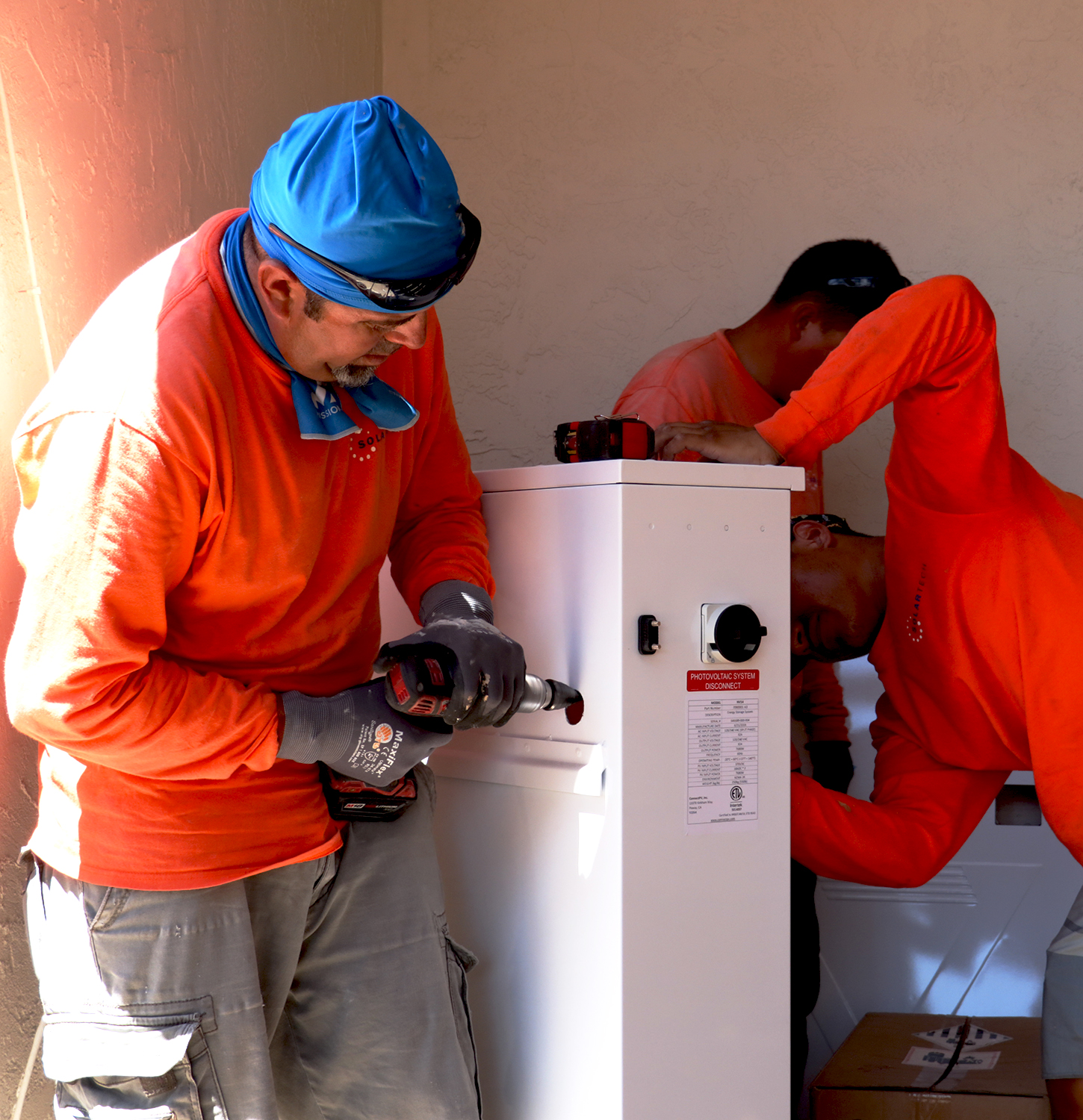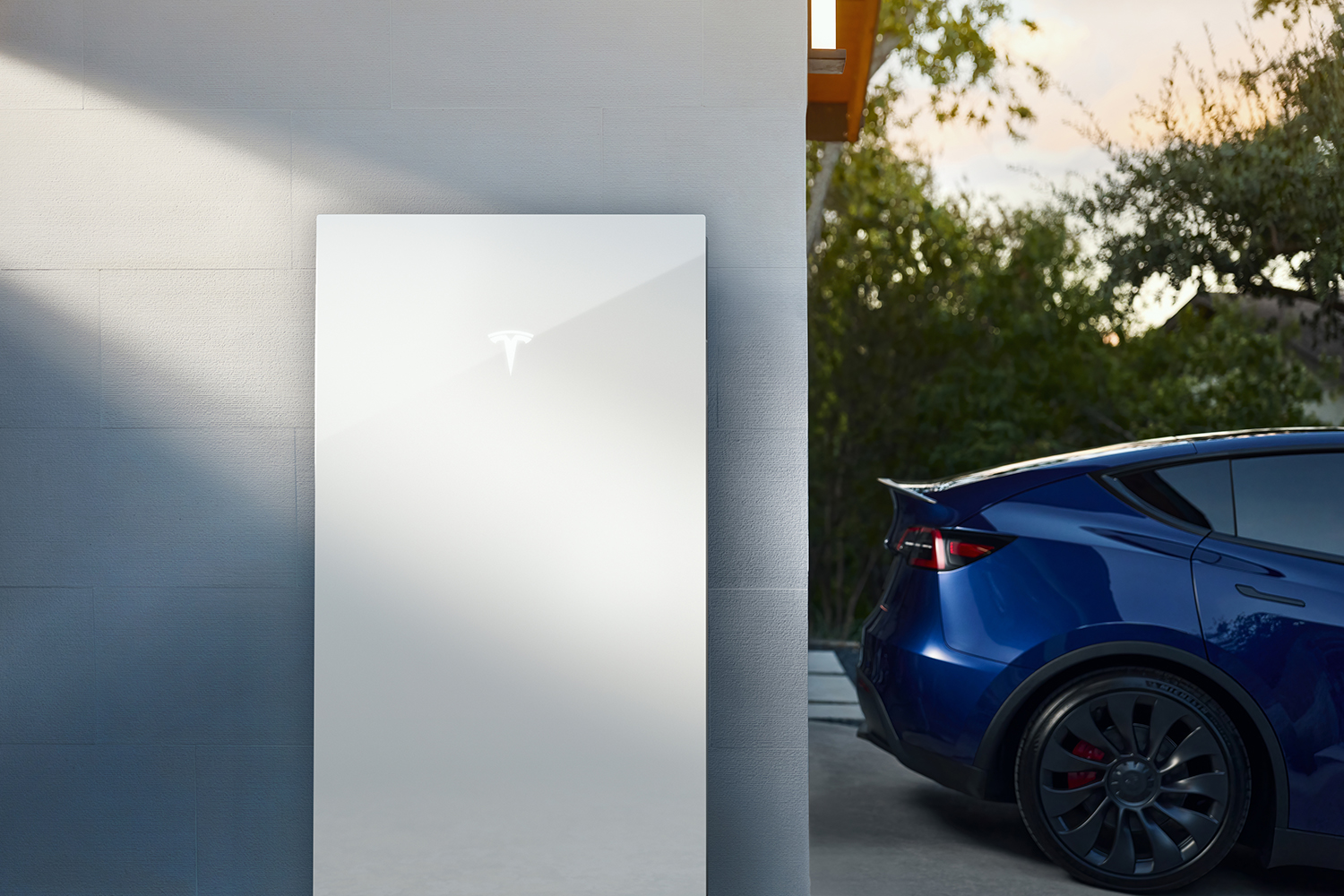ENERGY STORAGE
Solar Energy Storage Systems for Home Power Backup
“I can’t recommend SolarTech highly enough! They did a fantastic job on the install and their customer service is second to none.”
Ryan G. – Satisfied Customer

BATTERY STORAGE
Complete Home Battery Storage Solutions
Ensure your home remains powered during outages and gain independence from the grid with our advanced energy storage solutions. Our top-tier residential battery systems are tailored to fit your unique requirements, providing you with continuous power and true energy security. Enjoy the comfort of uninterrupted energy and the peace of mind that comes with it.
WHOLE HOME ENERGY
Premium Home Battery Storage Solutions
Experience uninterrupted power around the clock with our comprehensive home energy systems, designed to keep you running even during outages. As Certified Installers for the leading home battery brands, we stand out in the solar industry by deploying more home batteries than our competitors. We manage the entire process for you, from obtaining city permits to conducting inspections.

Benefits of Integrating Battery Storage with Solar
Unlock substantial savings by combining solar power with our advanced battery storage systems. By bundling these technologies, you not only reduce your reliance on the grid but also significantly lower your energy costs.

How Solar Energy Storage Systems Work
Reliable emergency backup
Ensure your home remains powered even during outages with our combined solar and battery storage system. Our solution provides a dependable backup power source, keeping your essential appliances and devices running when you need them most.
Achieve net zero energy usage
By integrating solar panels with battery storage, you can generate and store your own renewable energy, reducing your reliance on the grid. This approach allows you to achieve net zero energy usage, minimizing your environmental footprint while maximizing savings on your energy bills.
Optimize energy use during peak hours
Take control of your energy consumption by using stored solar power during peak hours when electricity rates are highest. Our combined solar and battery storage solution allows you to access your stored energy at night or during high-demand periods, ensuring cost efficiency and consistent energy availability.
Frequently Asked
Questions
Contact SolarTech Support
Phone
(619) 743 9193
sales@solartechonline.com
1. What are solar energy storage systems and how do they work?
Solar energy storage systems capture excess electricity generated by solar panels and store it for later use. These systems typically use battery technology (like lithium-ion batteries), though other methods include thermal storage, compressed air, and flywheels.
When your solar panels produce more electricity than you’re using, instead of sending it back to the grid, the energy is stored in your battery. Later, during the night or cloudy weather, you can draw electricity from your storage system instead of buying it from the utility company.
2. What are the main benefits of adding energy storage to my solar system?
Adding energy storage provides several benefits:
Backup power during grid outages
Increased energy independence
Reduced electricity bills through “peak shaving” (using stored energy when rates are high)
Smarter energy usage with SolarTech’s integrated systems
Some utility markets even offer extra incentives for optimized usage.
3. How much does a solar energy storage system cost?
Costs vary based on size, brand, and installation requirements. Most residential systems range from $8,000 to $15,000 installed. SolarTech offers flexible financing, seasonal promos (like $1,500 back), and up to $750 in referral incentives. Federal tax credits can also lower your final cost. The exact price depends on your energy needs and home setup.
4. How long do solar battery storage systems last?
Most systems come with a 10-year warranty and can last 10–15 years with proper care. Over time, battery capacity may reduce slightly. SolarTech offers maintenance programs to help maximize lifespan through performance checks and regular monitoring.
5. Can a solar energy storage system power my entire home during an outage?
Yes, with the right system size. SolarTech offers whole-home backup solutions designed to power essentials like lights, fridges, and HVAC systems.
During extended outages, solar panels can recharge your battery during the day. For homes with higher energy needs, multiple battery units can be added. SolarTech customizes recommendations based on your energy use and budget.
